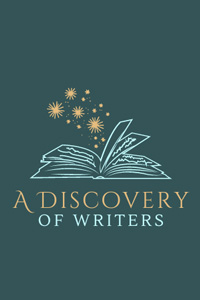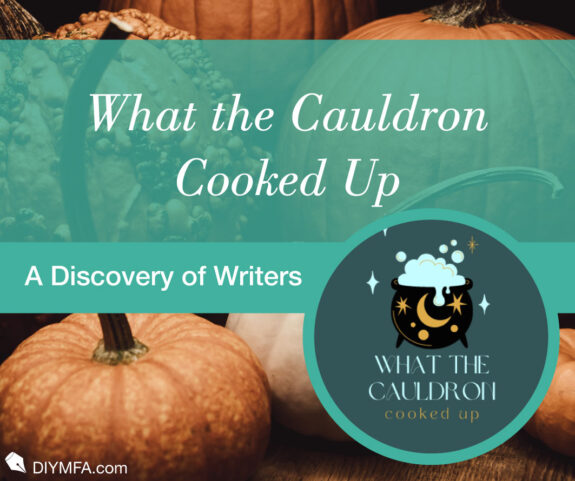Over the course of 2023 our critique group wrote this series of articles together as a Google docs adventure. We necessarily reminisced a lot, and we’ve grown closer in the process – even as we surprised ourselves with some uncomfortable realizations about what hasn’t worked in the “cauldron.”
In our last article, we explored the challenges we’ve faced during our time as a group: on an individual level, primarily imposter syndrome; on the individual and group levels, lack of discipline. That last one was painful to look at: having to accept that the downside to our group’s easy-going nature was sometimes letting each other slide. Accountability is one of the functions of our group, but our affection and kindness toward each other have precluded enough “tough love.”
Since that article, we’ve looked at how we can do better. Brenda created a writing-goals questionnaire as a self-reflection and planning tool. Then in a four-hour meeting, we went over each of our goals for the next twelve months; reviewed all of our current, near-future, and “dream” projects, and talked about what holds each of us back. We defined the steps needed to move from our most realistic goals to our more ambitious goals. We also stated what we need from the group to help us stay on track. Answers ranged from gentle encouragement to “a swift kick in the pants”; all fell under the heading of “nagging.”
In that meeting, we took a close look at each other’s goals and helped break them down into bite-sized pieces. We explored each person’s feelings about her capacity to achieve her goals. Arguably, that was the most important part: clarifying the blocks and limiting beliefs each of us holds about her own writing. Overall, it was a powerful session that further convinced us of the magic of our group.
We’re still working out how best to hold each other accountable. Some steps we’ve taken:
- We posted our lengthy answers to the goals questionnaire as a shared Google doc, so we can make changes to our own answers and peep on each other’s to implement nagging as needed.
- We created a shared Google calendar to keep tabs on each other’s deadlines.
- At each of our weekly meetings, we now do a specific goals check-in where we must report some progress since the last meeting.
- One of us suggested a rewards system, which we’ve yet to explore.
In what may end up being our most significant action as a critique group, we’ve begun to do deep dives into each other’s current novels. We want to read and process the manuscripts as a whole, rather than chapter by chapter, to be better engaged with the work as we help the writer with it. Brenda volunteered to go first. She will send her best-to-date draft for us to read and work on in November. (As of this writing that hasn’t happened yet.) It will be such a relief to read a book in its entirety, to have the full picture and a better understanding before responding to it. We’re excited to see how this new approach turns out. We believe it will allow each of us to receive better-informed feedback and provide a new ability for us to ask the group more meaningful questions about our stories. That concentrated level of attention also feels like a new dimension of accountability.
Meanwhile, as a way to recommit to our individual writing goals, each of us decided to invest money and time in the next level of what we need to achieve them.
- Liz and Soleah enrolled in a year-long program to go down the path of self-discovery and give more strength to their stories and more emotional depth to their characters. Liz says, “The program has made me look at myself differently as a writer. It’s helped me see at a deeper level how the recurring themes, my passions, and my strengths have not only shaped me but are also very much intertwined throughout my writing.”
- Brenda has engaged Gabriela Pereira for six months of individual coaching to help refocus/strengthen her current novel – one of the scariest things she has done but worth the anxiety.
- Janet did a virtual retreat, not knowing what to expect but finding exactly what she needed: a place for digging deep into truth through writing. She joined the online community and is using the space to force herself to be public as a writer…a huge push against her imposter syndrome.
Letting the Magic Happen
In this series we’ve talked about several benefits our group has brought us. Inspiration and close, new friendships are two. Another we’d like to revisit for final emphasis is cementing our writer identities. We’re raising this again to encourage you to embrace your identity as a writer, if you have not yet fully done so. It’s a way to push back against imposter syndrome.
Claiming our writer identities strikes us as an iterative process. At some point it dawns on a person that she’s a writer. At some other point she says it out loud. At still another point she believes it enough that the concept doesn’t blow away in a strong wind.
A good critique group helps cement that identity by continually mirroring it. A few ways our group helps us keep our writer’s identities:
- Encouraging each other to complete and polish short stories so we have more immediate gratification and validation than with an often years-long novel project.
- Encouraging each other to submit to writers’ contests or publications so we have work actively trying to find a home in the world. It gives us validation that we can compete with other writers.
- Encouraging each other to go to new workshops for and by authors and writers. We meet established authors and relate to them.
But we know the errant winds of a writer’s life still can shake that identity, sometimes quite severely: a rejection, a bad review, utter confusion over a project, the exigencies of life draining away all energy, etc. That’s when it’s easy for imposter syndrome to present its “Oh, no, you’re not!” face.
If that happens to you, tell it to get lost. In stronger language if you like.
If you’re already in a community of writers – especially if you’re shy – take a deep breath and speak up. Ask for help. If you don’t already have a community, seek out a good-natured and kind one. DIYMFA.com is one place to start. The best way to find their community is by joining their free newsletter. Community can make all the difference in steadfastly believing in yourself as a writer.
A Discovery of Writers believes the biggest magic of our group is love…
Of writing
Of reading
Of teaching
Of creating
And of course, each other.
We hope our series of articles has inspired you to seek your own critique group or to try a new approach with your existing one. We’d also love to hear what has worked for you. Feel free to connect with any/all of us on Facebook through Soleah’s group. It is a good first start toward finding a small, supportive writing community.

A Discovery of Writers is made up of four DIY MFA Small-Group Book Coaching graduates who were partnered in the program in 2020, stayed together after our terms ended, and have turned into a tight, very effective writing support group. We love how we work together and would like to explore/share our experience with the Word Nerd community. For more about us individually you can find us here.







